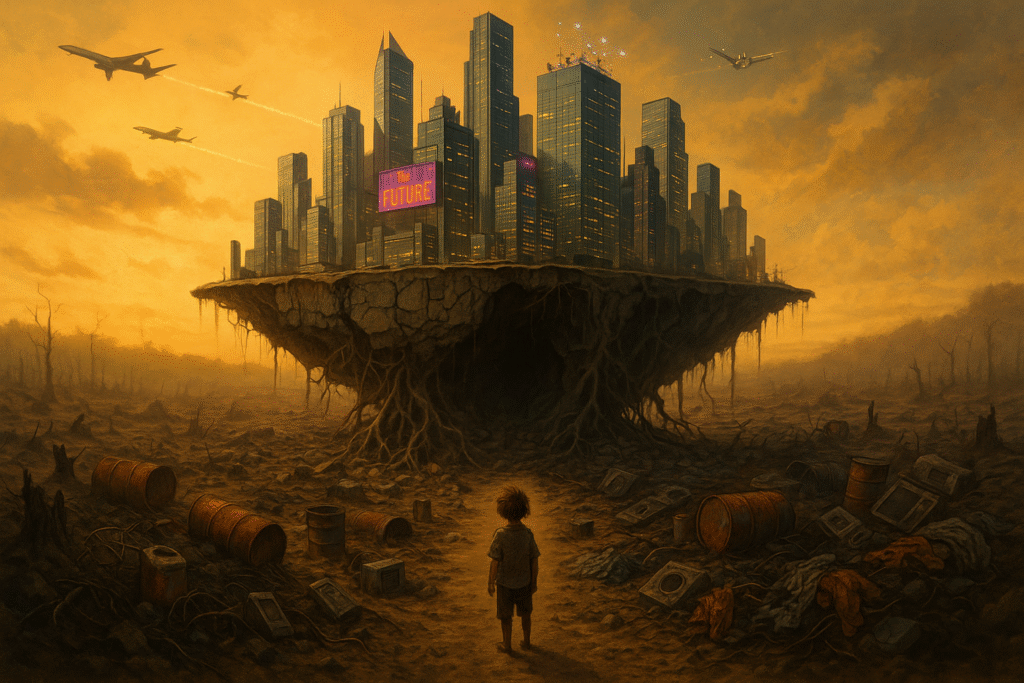Eidoism isn’t abstract philosophy, but deeply embedded in daily life — especially in Western consumer behavior.
“Western consumer society lives beyond its means”

This statement isn’t just about economics.
It’s about invisible moral debt — the gap between what people consume and what they actually pay, physically or ethically, for it.
Western consumers enjoy cheap goods, fast shipping, endless variety — but the true cost is exported elsewhere:
- To low-wage workers in Asia, Africa, Latin America
- To ecosystems destroyed for palm oil, lithium, fast fashion
- To future generations, through overproduction and waste
Living beyond your means doesn’t just mean borrowing money.
It means borrowing reality — using resources, time, and human lives you didn’t earn and won’t repay.
Why this ties into Eidoism
The loop of recognition makes people crave more — more products, more upgrades, more status — not for function, but for visibility.
Western economies are structured to feed this craving: low prices, high consumption, fast cycles.
But the loop hides the source of this comfort:
- Someone else working 12 hours in a factory
- A river polluted for cheap fabric dye
- A child laborer in a cobalt mine powering your phone
Eidoism exposes this invisible loop.
It says: your consumption is not neutral — it is shaped by recognition.
And it demands a moral blindness to sustain itself.
Why people should feel affected
Because every purchase that seems normal may be feeding a system they’d reject if seen clearly.
Because what feels like freedom is often built on someone else’s constraint.
Because “I deserve this” is often the voice of the loop — not the voice of necessity.

